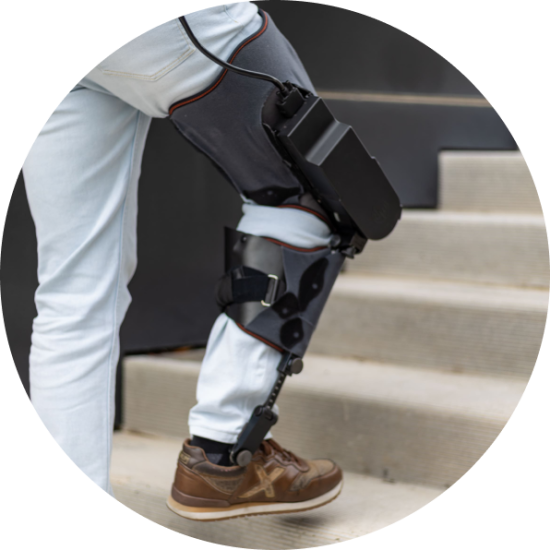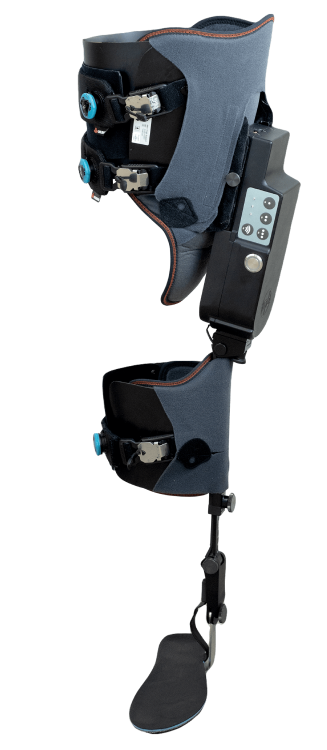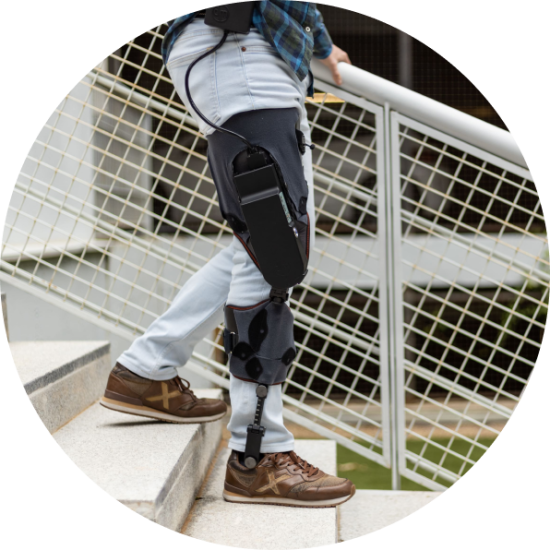MAK MARSI ACTIVE KNEE
MAK MARSI ACTIVE KNEE
The MAK device is the first robotic knee orthosis capable of interpreting and meeting the patient’s needs to achieve a functional gait.
Fully sensorised, it analyses the patient’s gait in real time and instantly adapts to the patient’s needs, including changes in speed and turns.
The MAK robotic orthosis is a rehabilitation tool that accelerates post-operative knee recovery and neurological rehabilitation, improving patient functionality and reducing the physical burden for both therapist and patient.

CLINICAL MAK BENEFITS

Reduces recovery time in knee arthroplasty patients compared to conventional treatments.

Minimises pain during sessions, reducing treatment drop-out rates, providing faster recovery and greater comfort.

Offers highly personalised and versatile rehabilitation, adapting exercises to work on a variety of skills, from standing to walking and functional exercises.

Provides accurate objective data at initial assessment and rehabilitation follow-up, including joint range, strength and weight bearing on each leg.

Provides precise therapy tailored to each patient’s needs, improving brain plasticity, motor control and functional skills.

Increases patient recovery and satisfaction.

Allows controlled passive mobilisation.

Facilitates early onset of standing and walking.

Helps to bear weight on the affected leg and move forward.

Adapts to different walking speeds and changes of direction.
PRODUCT DETAILS

Characteristics MAK MARSI ACTIVE KNEE
- Versatility and adaptability: It offers numerous indications and a wide range of exercises.
- Quick assembly: Requires minimal assembly time, optimising time to the maximum.
- Easy to fit: Installed in just 4 minutes and removed in seconds.
- Sensorised insoles on both legs: Allows real-time gait analysis.
- Ergonomic and adjustable: Provides a comfortable and easy fit.
- Long-lasting battery: Provides up to 7 hours of continuous use and full charge in 2 hours.
THE EXPERTS SAY
OUR PROGRESS
CLINICAL EVIDENCE


